Legacy Stories
Bill Geisdorf
Bill Geisdorf played college football for Drexel University where he met his wife Donna. After Drexel, he moved to Sarasota, Florida and became a beloved high school history teacher and respected football coach. A year after retiring in 2010, Geisdorf began having problems with his memory. He was diagnosed with dementia at just 62 years old and his symptoms severely declined over the next eight years. In April 2019, Geisdorf died at age 69. His brain was later studied at the VA-BU-CLF Brain Bank, where researchers diagnosed him with Stage 4 (of 4) Chronic Traumatic Encephalopathy (CTE). Now, Donna is sharing Bill’s story to show how CTE affected Bill’s twilight years and what she learned as a CTE caregiver.
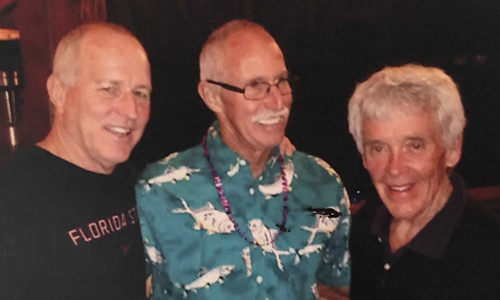
By Brandon Boyd
William “Bill” Geisdorf III came home from his second straight day of testing at the Sarasota Memory Clinic. He was completely dejected. Bill was a retired history teacher known for his rigorous current events assignments but was now struggling to complete the alphabet. He was once the life of the party but now was withdrawing from social situations because he couldn’t communicate like he once could. The man who dreamed of captaining his own fishing boats was now lost at sea.
“I felt like we were being robbed,” his widow, Donna Geisdorf said. “Our happily ever after was not to be.”
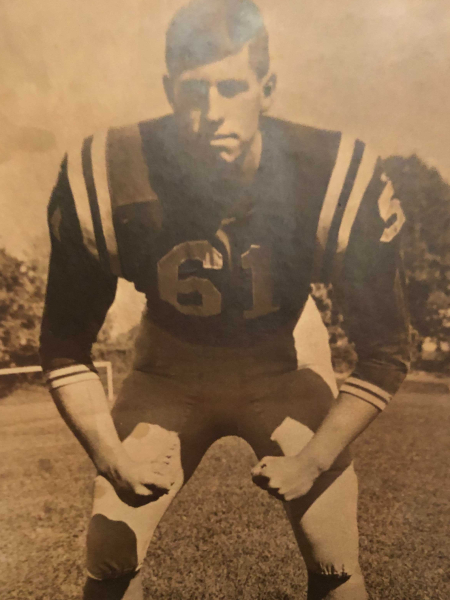
Bill and Donna attended Drexel University in Philadelphia in the 1970’s after Bill spent a year at Valley Forge Military Academy. Bill played football for the Dragons. Before they met, Donna couldn’t help but notice his good looks and cool demeanor from afar.
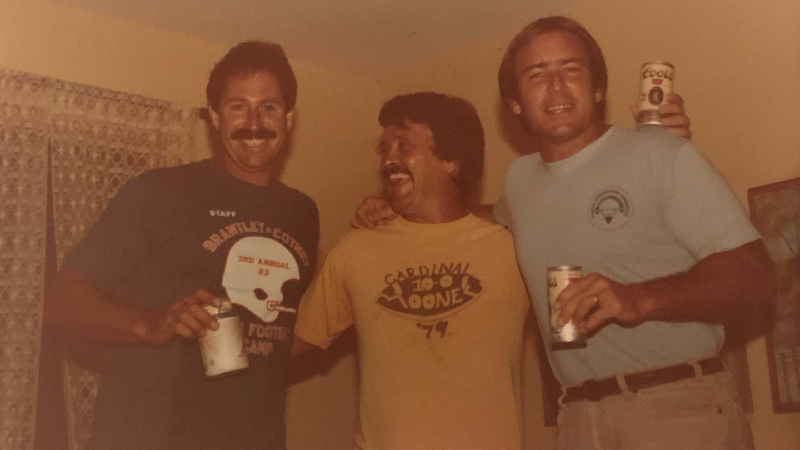
“He was just the person you wanted to be around,” Donna said.
Donna and Bill were introduced through mutual friends on spring break in Miami Beach in 1971. They were inseparable ever since.
They shared a love for live music and saw countless shows in Philadelphia. They went to the requisite number of Grateful Dead shows to earn “Deadhead” status. Among their many favorite concerts were Crosby, Stills & Nash, Jimmy Buffett, James Taylor, and several of Bill’s favorite Motown groups.
Donna never cared for football, but she took notice whenever the sport injured Bill. She remembers a couple of Bill’s concussions, including one where he woke up in the hospital afterwards.
The two married in 1975 and moved to a rural section of Sarasota, Florida in 1977. They had three children together, William “Will” Carl IV, Rachel, and Emma.
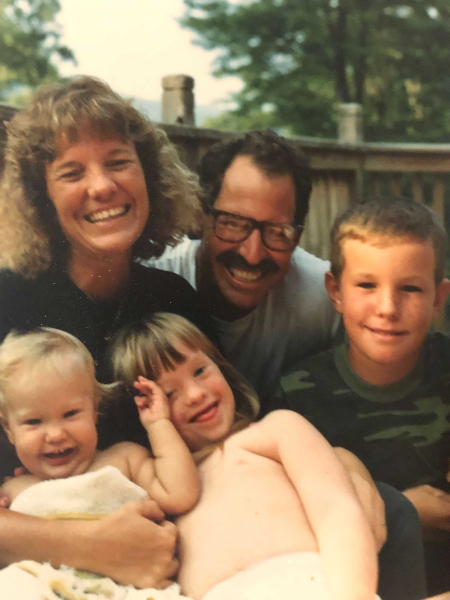
Bill was a world history teacher and a football coach, first at Cardinal Mooney High School, then at Riverview High School in Sarasota. Students adored Mr. Geisdorf for his lessons, classroom theatrics, and his readily available life advice. Players loved him for his ability to command authority without ever being mean or condescending.
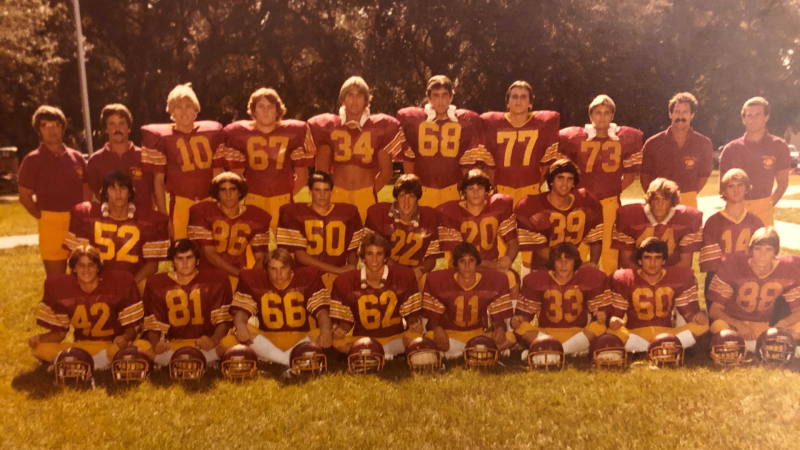
Donna describes Bill as a wonderful father who had unique relationships with each child. He loved wrestling and playing with Rachel, who was born with Down Syndrome. He coached her Special Olympics basketball teams as passionately as he coached his high schoolers.
“His family was his whole world, the center of his universe,” longtime friend Con Nicholas said about Bill. “He was such an outstanding husband and father.”
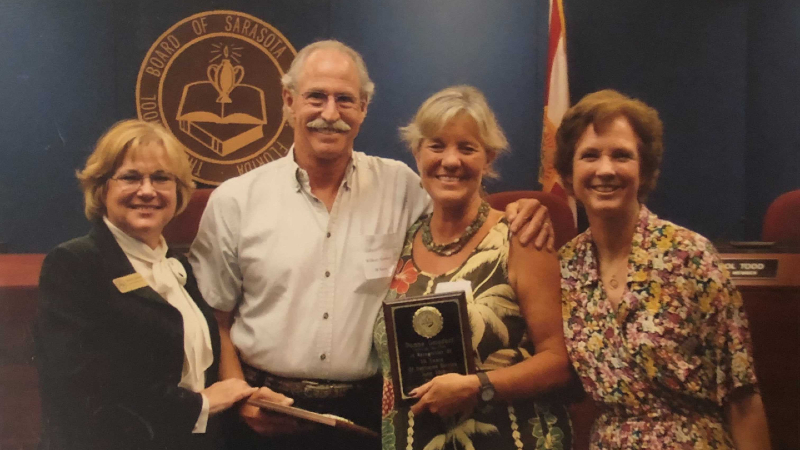
Bill and Donna retired simultaneously after 33 years of teaching in 2010. In 1996, Bill obtained his captain’s license. Born in Ocean City, New Jersey, he frequently fished with his father and had a lifelong affinity for the sea. He dreamed of spending some of his retirement as a charter fisherman.
“Land sucks,” he would often joke to whoever shared a boat with him as they returned from a day of fishing.
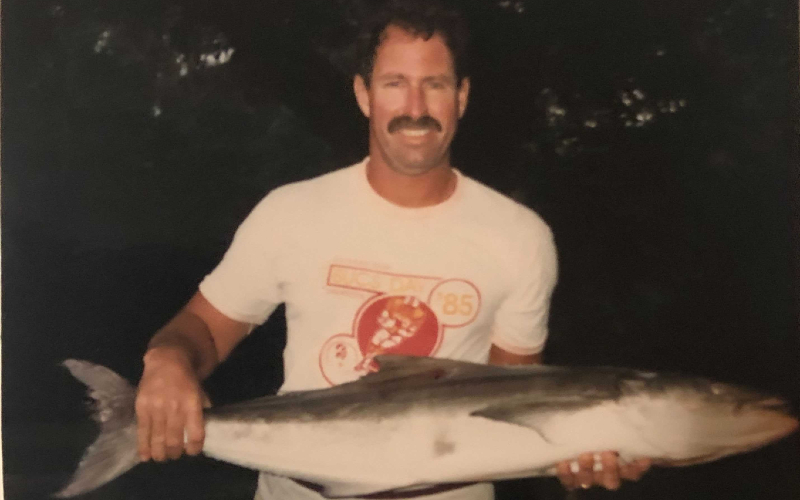
But a year after Bill left the classroom, he began repeating the same questions to Donna multiple times a day. The repetition was infrequent at first and Donna thought little of it. But Bill’s confusion soon crossed the point of concern.
During a doctor’s appointment, Donna handed Bill a pen to sign a form. He looked down at the paper and then back at Donna. He shook his head. He couldn’t remember how to write his name.
“That was shocking for me,” Donna said. “I can remember feeling devastated for him, for both of us.”
After some researching, Will thought football may have something to do with his father’s rapid decline. Bill thought the same while he was still cogent enough to research CTE. He raised the possibility of having CTE to Donna in the early 2010’s.
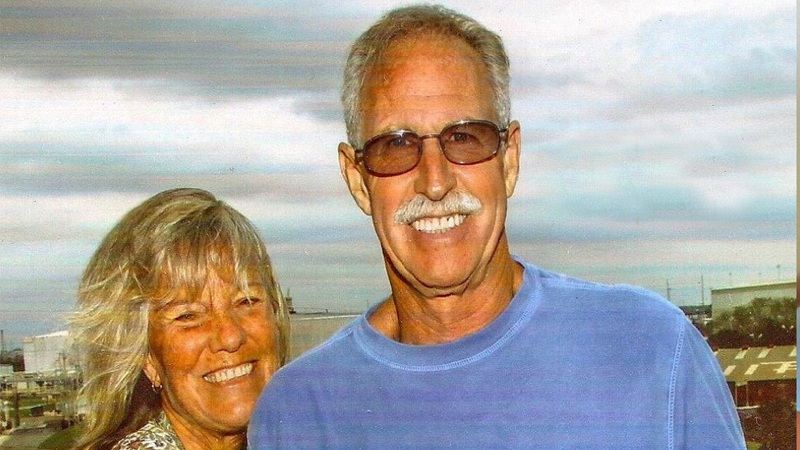
Losing parts of Bill saddened and angered Donna. Knowing Bill’s problems were potentially due to repetitive head impacts from football only increased her frustration.
“He was checking all the boxes for CTE the more I read about it,” Donna said.
Donna quickly and unexpectedly became Bill’s caretaker. She learned plenty of “hacks,” as she calls them, for managing life with Bill. She learned not to argue with him. She learned the importance of a short leash. Through an Alzheimer’s Disease support group, she learned for instance that on trips to see her family in upstate New York, she needed to wait to use the restroom until she was on the plane with Bill. Telling Bill to wait outside the terminal restroom may have proved disastrous.
They took walks at Benderson Park by their home in Sarasota. There, Bill’s love of the ocean came through when he would fill his pockets with the shells that lined the park’s walking path.
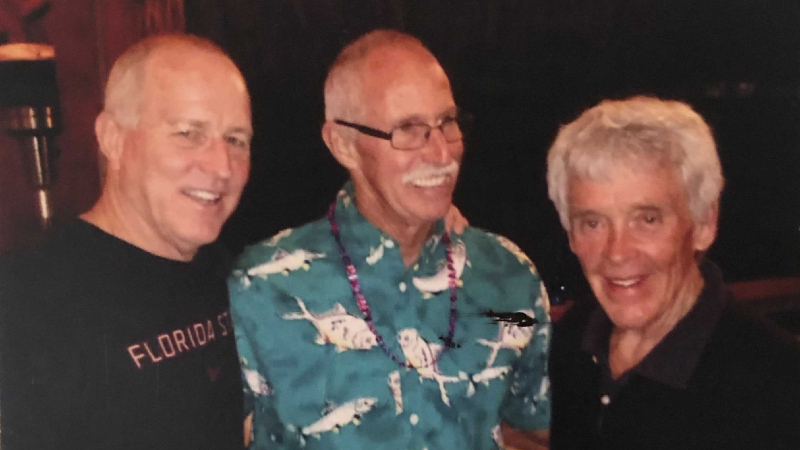
They visited Rachel at work at Goodwill. Donna always allowed Bill to buy one thing whenever they went. Eventually, he began choosing picture frames. In all their time together, Donna never knew Bill to like arts and crafts. But suddenly, he was ornately gluing his collected shells to the picture frames from Goodwill.
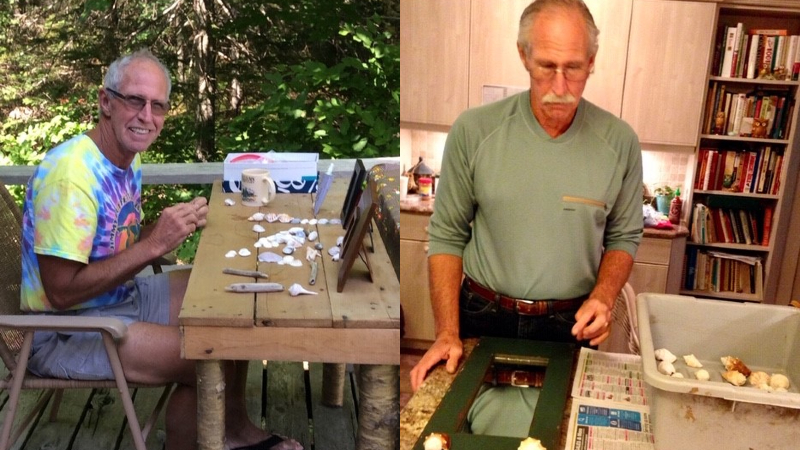
Despite having lost so many of his faculties, Donna saw a different Bill whenever he worked on the frames. He loved gifting the frames to his friends, family, and doctors. Donna thinks he felt fulfilled by creating an attractive product for others and that the crafting improved the quality of his life.
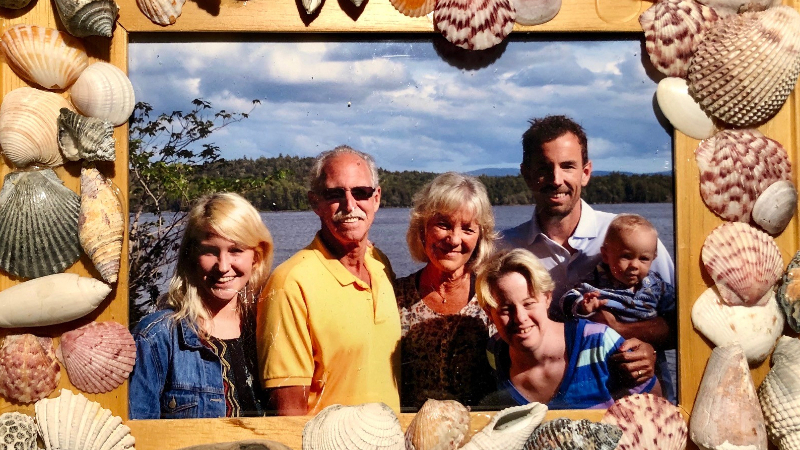
“Creating these beautiful frames was comforting to him,” Donna said. “He would just relax and let go with it.”
But the frames became less and less tidy as time went on. Bill eventually lost the concept of what a frame was for when he glued shells over the glass.
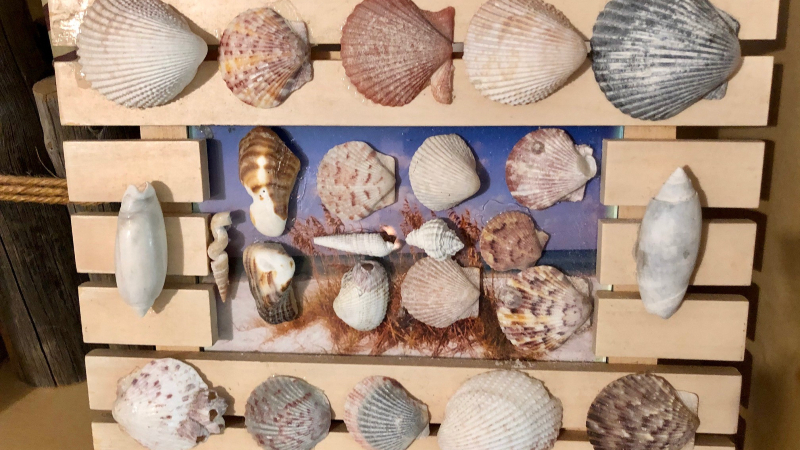
Bill was diagnosed with dementia when he was just 62 years old. No longer able to care for him, Donna had to move him into a memory care facility nearby. He soon earned a reputation for running around the facility’s square concourse. He possessed much more physicality than most of the other residents who were 20-30 years older than him. Bill’s physicality and increased agitation eventually became problematic and resulted in injury to other residents. After 11 months, the facility asked Donna to find a better fit for Bill.
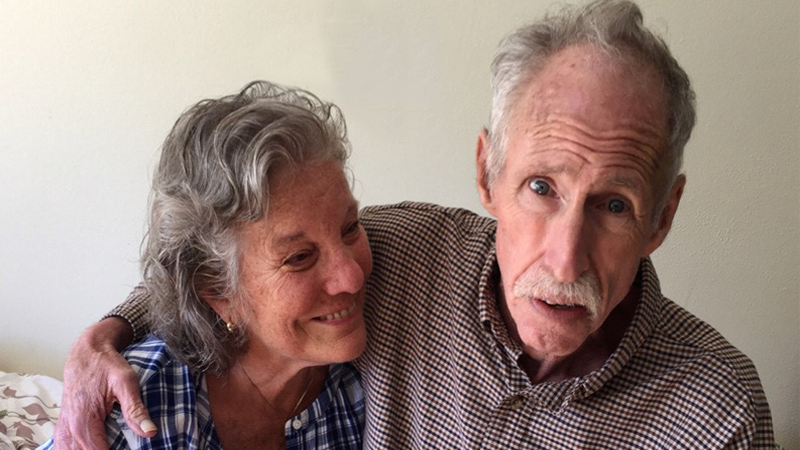
By the time he moved in to his second facility, Bill had lost most of his communication skills, causing his nurse to put him on hospice care. For most of his life, Bill was a sturdy 6’0” and 190 pounds. By the time he was at his second facility he was down to just 120 pounds.
He was rapidly deteriorating in every capacity, but the right song could bring a glimpse of the old Bill out again. Donna ensured Bill’s iPod was playing 24/7 at both facilities. Hearing The Temptations, The Four Tops, Buffett, or any of his old favorites could move Bill to dance, as best he could, much to the delight of his nurses.
Bill died on April 22, 2019. He was 69 years old. After his death, Donna arranged to follow through on Bill’s inquiry about his own CTE by donating his brain to the VA-BU-CLF Brain Bank.
Dr. Ann McKee conducted the pathology report on Bill’s brain. Dr. McKee told Donna that Bill’s brain had undergone tremendous atrophy. The severely reduced size of Bill’s brain indicated to Dr. McKee that Bill was severely impaired when he died. Dr. McKee diagnosed Bill with Stage IV (of IV) CTE, severe Alzheimer’s, and some developing Lewy Bodies that may have affected his mobility.
Given the concurrent diagnoses, Donna asked Dr. McKee an important question. If not for football, would Bill have developed Alzheimer’s Disease?
While Dr. McKee couldn’t definitively answer the question, she informed Donna how CTE can often open the door for other neurodegenerative diseases like Alzheimer’s.
Will spoke at his father’s funeral to an audience that included many of Bill’s former players, teammates, and coaching buddies. Donna was proud of him for offering a referendum on youth tackle football and for sharing the horrors of his dad’s twilight years.
“If your kids insist on playing high risk sports like football,” Will said in his eulogy. “At least make them wait until high school.”
“I know it was hard for a lot of them to hear,” Donna said. “A lot of them are thinking, ‘Oh, wow. It happened to this guy. It could happen to me.’”
Bill loved football. But after he learned about CTE, Donna believes he would have pushed children towards individual sports and away from tackle football until they were old enough. Will’s son and Donna’s only grandchild is six years old and is quite the golfer.
She keeps in close contact with many of the women whom she attended Alzheimer’s support groups with when Bill was alive. Like Donna, many of them are now widows. Donna knows support groups aren’t for everyone but strongly recommends them to anyone whose partner is suffering from possible CTE.
“I really enjoyed going to support groups,” Donna said. “Because I always came away with a new perspective or I would come away feeling like I had helped somebody else.”
Donna still lives on the land she and Bill purchased in 1977 and in the community where Bill was a fixture. Frequently, a cashier will take a second look at her credit card before handing it back to her.
They ask if she’s related to the Mr. Geisdorf.
You May Also Like
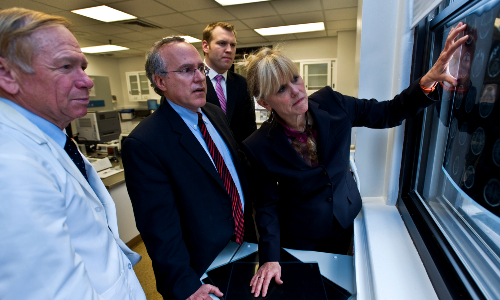
Although we cannot yet accurately diagnose CTE in living people, a specialist can help treat the symptoms presenting the most challenges.
CTE Treatments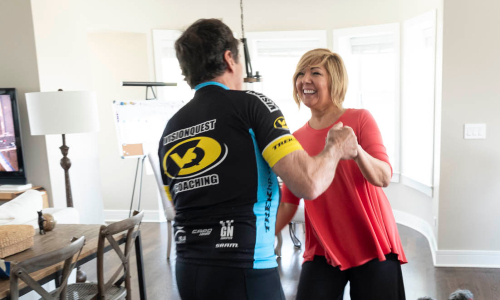
Those struggling with suspected CTE are not the only ones who need support. View tools and resources for CTE caregivers.
Caregiving for CTE